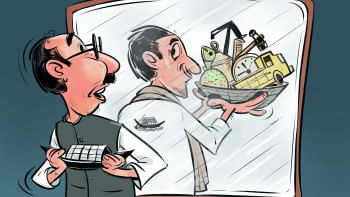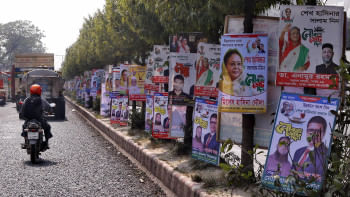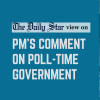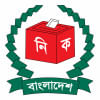Why overhaul of EC is topmost priority

Since the newly formed interim government has taken charge, emergence of an impartial democratic governance has become the sine qua non for restoration of public trust in the electoral system. Since August 5, in a significant overhaul of the local administration, the interim government dismissed 876 elected representatives nationwide. To fill these positions, administrators were appointed in 61 districts, 495 upazilas, and 330 municipalities, largely replacing those who had served under the previous Awami League (AL) government. In addition to the removal of seven previously appointed municipal administrators, 323 municipal mayors were also dismissed.
The administration is also being shaken up with at least five mid-ranking police officials, who were arbitrarily dismissed or sent into forced resignation during the tenure of AL, being reinstated. The chief justice, five justices, top police officials, and the central bank governor—all have gone into retirement, yet there has been no change in the bedrock of the country's democratic governance i.e., the Bangladesh Election Commission (EC).
Questions have been raised about the current Chief Election Commissioner (CEC) Kazi Habibul Awal and his colleagues, following the fall of Sheikh Hasina's government. Despite his overseeing the 2024 general election, widely criticised for irregularities and bias, the CEC continues to hold his position at a time when the growing national sentiment is that a new, impartial EC is essential to restore confidence in the electoral process.
Over the past 53 years, Bangladesh has struggled to build a strong electoral system. While elections overseen by caretaker governments since the transition to parliamentary democracy in 1991 were generally considered to be free, fair, and participative, those conducted under political administrations of the ruling AL often lacked credibility due to interference by the government. Same thing happened when the then ruling BNP tried to manipulate the infamous Magura by-polls in 1994.
The electoral system took a significant turn in 2011 when the Sheikh Hasina-led AL abolished the constitutional requirement for a caretaker government through the 15th amendment. This decision led to a boycott of the 2014 general election by BNP and other opposition parties which was marred by violence, voter suppression, and allegations of government crackdowns on opposition leaders. More than half of the seats i.e. 153 out of 300 were uncontested and won by the single ruling party candidates. From 2014 to 2024, the country's electoral landscape has been defined by a series of controversial elections with poor participation, political repression, and concerns over the state of democracy.
Similarly, under former CEC KM Nurul Huda, the 2018 election marked the introduction of electronic voting machines (EVMs) which became a source of controversy with a turnout of 80 percent with the AL, in alliance with the Jatiya Party (JP), securing over 90 percent of the parliamentary seats. Observers reported significant irregularities, such as voter intimidation, ballot stuffing, and occupation of polling booths, raising serious doubts about the integrity of the electoral process and the role of the EC. In 2020, 42 prominent citizens called on the then President Abdul Hamid to establish a Supreme Judicial Council to investigate allegations of misconduct, including financial corruption, against the EC led by KM Nurul Huda.
In 2023, the EC's widely publicised dialogue with registered parties occurred with many expecting the EC to first enable the BNP to freely decide on participating. Instead, the EC considered its duty fulfilled by simply delivering an invitation to the BNP's empty, locked office. Additionally, TIB published a report on the 12th National Parliament Election criticising EC for failing to ensure fairness, transparency, and competitiveness.
The 2024 general election was widely seen as a repeat of previous polls, with an exceptionally low turnout of 27 percent, and the AL poised for another victory. These issues highlight ongoing concerns about the EC's ability to conduct credible elections, yet the EC seems mostly oblivious of its role in the flawed electoral processes. According to Articles 118(4) and 126 of the Constitution of Bangladesh, along with Article 4 of the Representation of the People Order, 1972, the EC is an independent constitutional body, accountable only to the constitution and relevant laws. Given this, it is crucial for the CEC and the EC led by him to uphold democratic principles.
On August 24, the CEC wrote a column for Samakal expressing concerns about the constitutional requirement for the EC to conduct general elections within 90 days, as mandated by Article 123(3)(b) of the constitution. He warned that failure to do so could be considered a grave offense under Article 7A, potentially punishable by death. However, he also acknowledged the impossibility of holding elections within this timeframe under current circumstances, likening the situation to "the sword of Damocles hanging over one's head." Given the complexity of the situation, looming crises, and the fact that elections overseen by the EC in the past 15 years have eroded public trust, he and his colleagues should have resigned immediately without waiting for either a call from the president or any other corner who they would have difficulty ignoring.
The interim government needs to rebuild electoral institutions starting with an independent election commission free from political influence. This is an opportunity to restore citizens' trust in elections by creating a sustainable, transparent electoral process that puts power back in the hands of the people. Hence, it is difficult to understand why the current CEC and his colleagues are not submitting resignations as opposed to being asked to do so. Do they really believe that any further election will be held under their stewardship? Or are the salary, benefits, perks and privileges they enjoy too good to be not enjoyed until shown the door?
Prof Syed Munir Khasru is chairman of The Institute for Policy, Advocacy, and Governance (IPAG), an international think tank. He can be reached via www.syedmunirkhasru.org.
Views expressed in this article are the author's own.
Follow The Daily Star Opinion on Facebook for the latest opinions, commentaries and analyses by experts and professionals. To contribute your article or letter to The Daily Star Opinion, see our guidelines for submission.

 For all latest news, follow The Daily Star's Google News channel.
For all latest news, follow The Daily Star's Google News channel. 










Comments